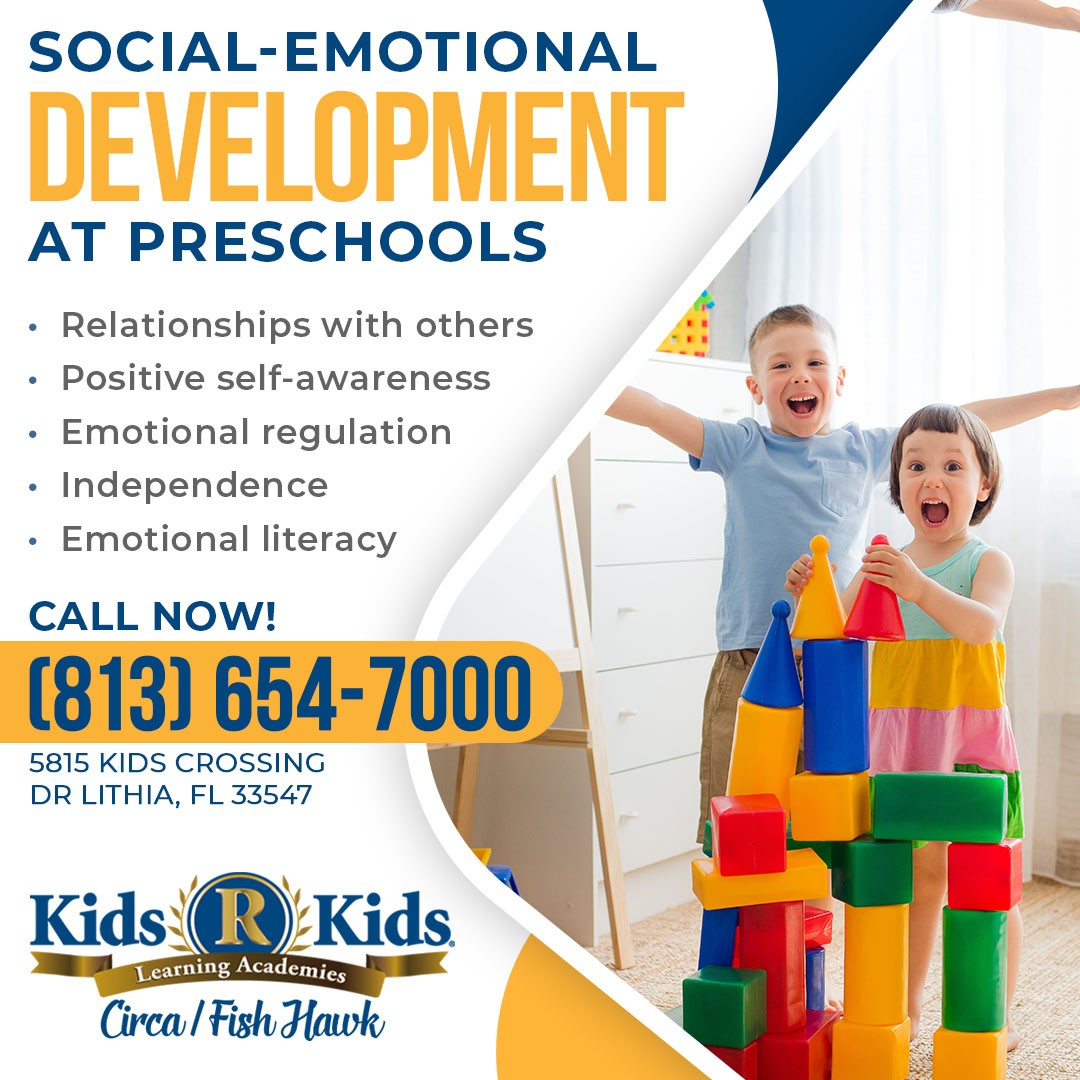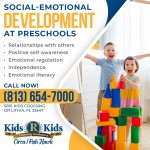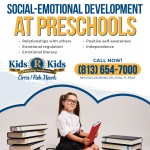Social-emotional learning of preschoolers
Social-emotional wellness is, in a nutshell, the capacity to experience and regulate emotions, form secure relationships, and explore and learn. Kids ‘R’ Kids, an educational preschool, discusses how caregivers can help foster social-emotional development among preschoolers and how children can acquire various aspects of this development at a preschool.
How to support a preschooler’s social-emotional development?
Children learn social-emotional skills by watching, imitating, and responding to the social behaviors of others. Family, cultural background and early experiences define a child’s social-emotional behavior to a large extent. Their relationship and interaction with family members, child care groups, schools, and communities help them learn about emotions and social norms.
Children need validation, mental stimulation, learning opportunities, responsiveness, and support from their caregivers to learn and demonstrate healthy social-emotional behavior.
Social-emotional development at preschools
-
Relationships with others
As preschoolers engage in pretend-play with their peers, they use language to express their feelings and thoughts. As this interaction continues, they begin to understand their friend’s feelings and respond appropriately. This development of empathy is a crucial element of intimate and strong relationships. They may still resist sharing toys but slowly and steadily they begin to understand the relevance of sharing and cooperation.
-
Positive self-awareness
Several activities such as circle time, playing in the gym, awaiting their turn, conversing with peers, and correctly addressing teachers and other students are some ways children develop a sense of self. Self-awareness helps children understand why they do certain things and how to better manage their behavior.
- Emotional regulation
Emotional regulation is the ability to monitor and modulate which emotions one has when they occur, and how one experiences and expresses them. Good emotional regulation in children not only positively impacts relationships, but is also a strong predictor of academic competence and success. Preschoolers experience a variety of emotions in different ways. They may be experiencing anxiety and expressing it by laughing. Over time, they learn to match the emotions to the expression and regulate their emotions. Preschoolers need a great deal of help and practice developing these appropriate behaviors.
-
Independence
As children settle into the predictable routines at playschool, they learn to clean up after themselves, make choices, problem solve by themselves, take controlled risks, and care for their belongings. The environment encourages children to become independent. They begin to discuss their day with their caregivers using new words and expressions.
-
Emotional literacy
As children learn emotional regulation, they also acquire emotional literacy. This is their ability to label and talk about their own emotions or feelings, as well as the feelings and emotions of others. This is an essential milestone of social-emotional development. It helps children understand their own emotional experiences and, simultaneously, helps them acknowledge and understand the emotional experiences of others. Children who can understand and label their emotions function smoothly in their daily routines. They are less likely to become easily frustrated, have excessive tantrums, or act impulsively.
Why Kids ‘R’ kids?
The philosophy of “Hug First, Then Teach”, defines every aspect of what Kids ‘R’ Kids, Circa Fishhawk stands for. Unlike many daycare centers or childcare providers, its methodology is a whole-child approach. It constantly strives to strengthen and encourage every child’s emotional, intellectual, social, and physical well-being through the expertise of its childcare providers and a unique partnership with parents.
Kids ‘R’ Kids International is accredited by AdvancED®, the world’s largest education community, and the Southern Association of Colleges and Schools Council on Accreditation and School Improvement (SACS/CASI). SACS/CASI is an accreditation division of AdvancED®. This accreditation ensures that the high accreditation standards are met and exceeded.
Call today at (813) 654-7000 to learn more about the Kids ‘R’ Kids before and after school programs (Kindergarten to Grade 5) or to schedule a visit.


























